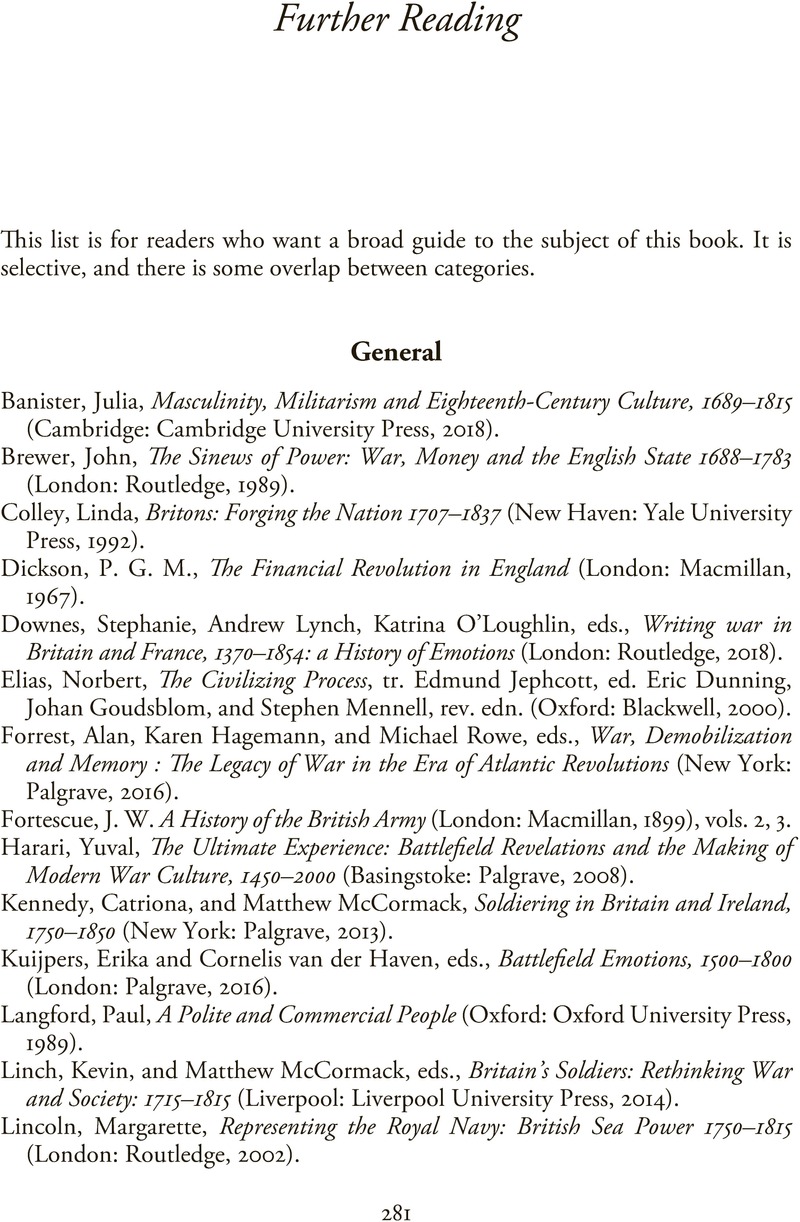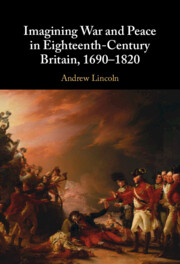Book contents
- Imagining War and Peace in Eighteenth-Century Britain, 1690–1820
- Imagining War and Peace in Eighteenth-Century Britain, 1690–1820
- Copyright page
- Dedication
- Contents
- Figures
- Preface
- Introduction
- Part I Developing Ideals
- Part II Developing Questions
- Part III War and Peace in an Age of Revolutions
- Part IV The Landscape of Conquest
- Further Reading
- Index
- References
Further Reading
Published online by Cambridge University Press: 10 January 2024
- Imagining War and Peace in Eighteenth-Century Britain, 1690–1820
- Imagining War and Peace in Eighteenth-Century Britain, 1690–1820
- Copyright page
- Dedication
- Contents
- Figures
- Preface
- Introduction
- Part I Developing Ideals
- Part II Developing Questions
- Part III War and Peace in an Age of Revolutions
- Part IV The Landscape of Conquest
- Further Reading
- Index
- References
Summary

- Type
- Chapter
- Information
- Imagining War and Peace in Eighteenth-Century Britain, 1690–1820 , pp. 281 - 292Publisher: Cambridge University PressPrint publication year: 2023

